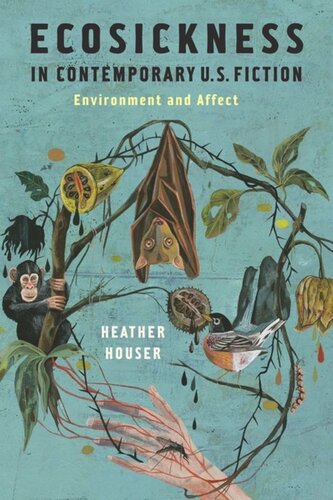

Most ebook files are in PDF format, so you can easily read them using various software such as Foxit Reader or directly on the Google Chrome browser.
Some ebook files are released by publishers in other formats such as .awz, .mobi, .epub, .fb2, etc. You may need to install specific software to read these formats on mobile/PC, such as Calibre.
Please read the tutorial at this link: https://ebookbell.com/faq
We offer FREE conversion to the popular formats you request; however, this may take some time. Therefore, right after payment, please email us, and we will try to provide the service as quickly as possible.
For some exceptional file formats or broken links (if any), please refrain from opening any disputes. Instead, email us first, and we will try to assist within a maximum of 6 hours.
EbookBell Team

4.1
70 reviewsThe 1970s brought a new understanding of the biological and intellectual impact of environmental crises on human beings. As efforts to prevent ecological and bodily injury aligned, a new literature of sickness emerged. "Ecosickness fiction" imaginatively rethinks the link between ecological threats and the sick body to bring readers to environmental consciousness. With chapters on David Foster Wallace, Richard Powers, Leslie Marmon Silko, Marge Piercy, Jan Zita Grover, and David Wojnarowicz, Heather Houser shows how narrative affects such as wonder and disgust organize perception of an endangered world and orient us ethically toward it. Houser connects contemporary literature, ecocriticism, affect studies, and the medical humanities and positions ecosickness fiction relative to technoscientific innovations and emergent forms of environmentalism.
Heather Houser traces the development of ecosickness, which links ecological and bodily injury, through a compelling archive of contemporary U.S. novels and memoirs, Ecosickness in Contemporary U.S. Fiction shows how narrative affects such as wonder and disgust organize perception of an endangered world and orient us ethically toward it.